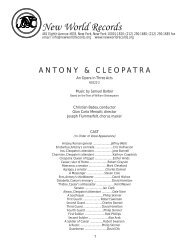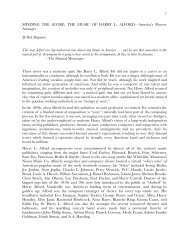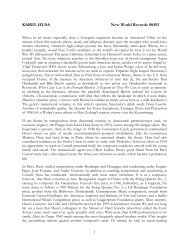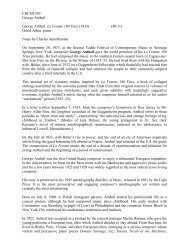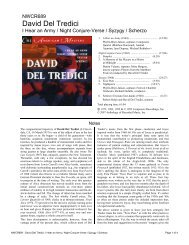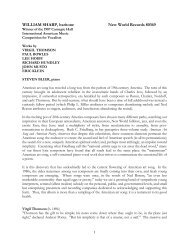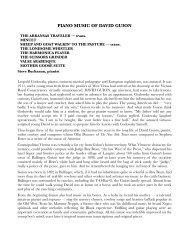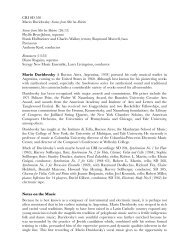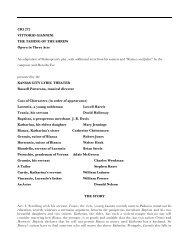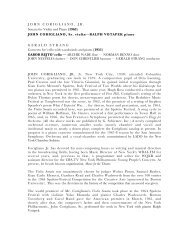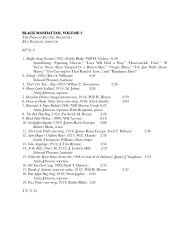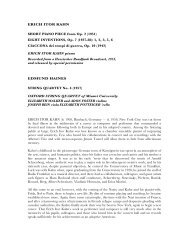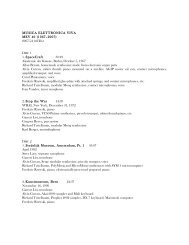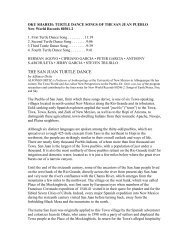Brother, Can You Spare a Dime? - New World Records
Brother, Can You Spare a Dime? - New World Records
Brother, Can You Spare a Dime? - New World Records
You also want an ePaper? Increase the reach of your titles
YUMPU automatically turns print PDFs into web optimized ePapers that Google loves.
When Geer went to <strong>New</strong> York to be in the stage version of John Steinbeck’s Grapes of<br />
Wrath, Guthrie followed and soon became a contributor to the Daily Worker. He was<br />
precisely what many working-class intellectuals and urban radicals had been looking for,<br />
an honest-to-goodness laboring-class American with a gift for writing and singing in a<br />
folk idiom and a taste for protest and for radical politics. He quickly became part of a<br />
circle including Pete Seeger, Bess (Lomax) and Butch Hawes, Aunt Molly Jackson, Lee<br />
Hayes, and other musicians and intellectuals committed to the idea that the American<br />
working classes could be led to revolution by political songs written in an idiom familiar<br />
to them.<br />
Guthrie wrote songs detailing the tragic lot of poor Americans suffering the additional<br />
burdens of the Depression. His songs dealing with the tragedies of the Dust Bowl were<br />
easily the most powerful and moving protest statements to come out of the thirties. He<br />
recorded for the National Archives; Victor <strong>Records</strong> brought out two sets of his Dust Bowl<br />
Ballads; Folkways issued additional songs; and he wrote Bound for Glory, a book<br />
detailing his life and his conversion to political activism. As a result of all this, he<br />
became a celebrity among the intellectual-political circles of the urban East.<br />
But though many of Guthrie’s nonpolitical songs (“So Long, It’s Been Good to Know<br />
<strong>You</strong>” and “Oklahoma Hills,” for example) were popular among country-music audiences,<br />
his protest songs remained largely unknown except among his recent following. His new<br />
songs were extravagantly praised as classics of American folk song yet remained<br />
unknown among the very folk they were supposed to convert to a new way of thinking.<br />
Their greatest popularity has come, ironically, decades after the Depression.<br />
In typical Guthrie style, the strophic text of “I Ain’t Got No Home in This <strong>World</strong><br />
Anymore” identifies a protagonist wandering through America during the Depression<br />
(“I’m just a wanderin’ worker, I roam from town to town; /The police make it hard<br />
wherever I may go”) and then lays out a protest in hard, clear language (“Rich man took<br />
my home and drove me from my door,/And I ain’t got no home in this world anymore”).<br />
Guthrie’s singing and harmonica playing are supported by simple strummed guitar chords<br />
reminiscent of the early style of the Carter Family. It is a powerful song, eloquent and<br />
moving in its directness. Without such models, the protest songs of the late fifties and the<br />
sixties might have taken quite different directions.



